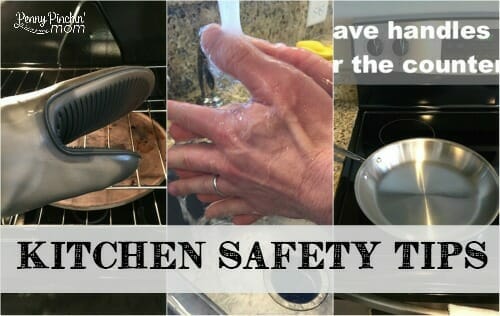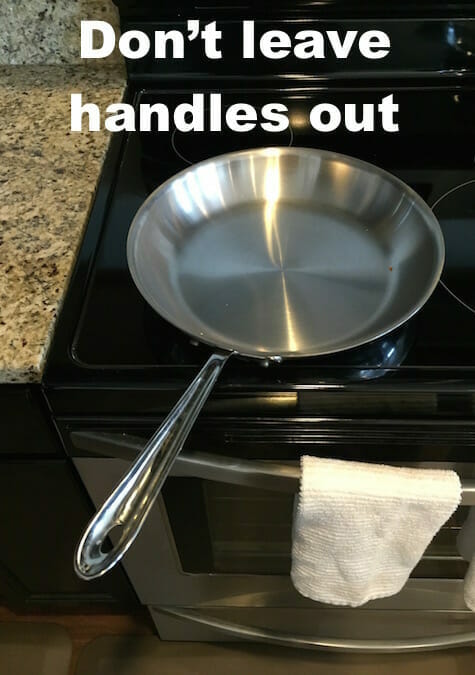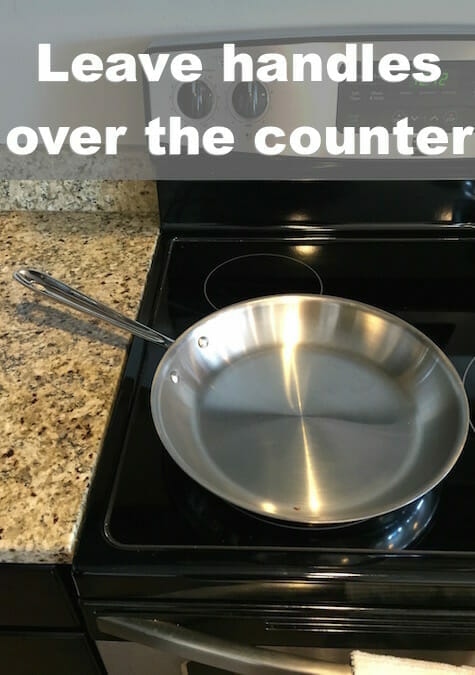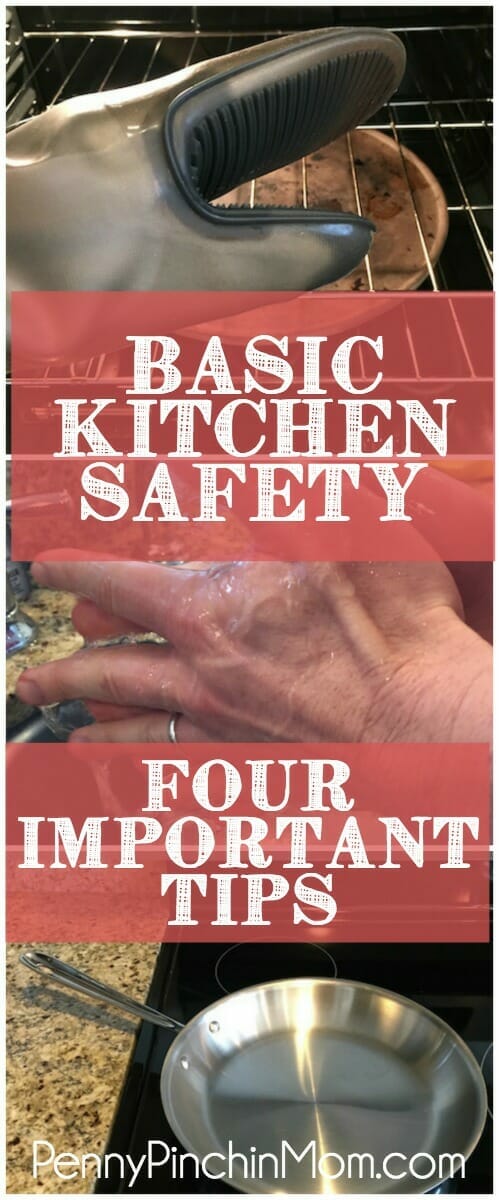Cooking is a lot of fun and if you’re like me, then you cook everyday.
Whether it’s your passion, hobby, or vocation, safety in the kitchen is extremely important. This is especially true if you have children or pets who could accidentally come into contact with a sharp knife or a hot surface.
Getting your kids involved in the kitchen from an early age can help teach them how to be safe and have fun cooking.
This post talks a lot about things you shouldn’t do in the kitchen, but first let’s start off with some fun and safe ways you can get the kids involved – Have them help by:
- measuring ingredients
- washing fruits and veggies
- stirring ingredients together
- garnishing food
- greasing pans
- peeling oranges or hard boiled eggs
- pouring cool liquids.
Now that we’ve talked about activities that your kids can enjoy, let’s take a look at how to keep the whole family safe in the kitchen.
Sanitation
Food borne illness is no joke and can make you very sick. The good news is that it’s easily avoided by following a few simple rules in the kitchen. The most important one is to wash your hands and utensils thoroughly with soap and water.
Hand washing
A good rule of thumb for hand washing is to sing the “Happy Birthday” song while washing your hands. That way you’ll know you’ve washed them long enough to get them thoroughly clean. And that’s a great strategy to instill in your children concerning hand washing.
Always wash your hands before preparing food. It’s especially important to wash your hands, utensils, and any surfaces that have come into contact with raw meat before touching anything else. So that means wash your hands after handling raw meat or things that touched raw meat.
A mild bleach solution (1 TB bleach per gallon of water per the USDA) is useful for sanitizing utensils and cutting boards. It’s also important to wash all your produce before you start cooking, unless it has been prewashed.
Storage
Like they are everywhere else, kids are curious in the kitchen. That’s why it’s important to keep your sharp utensils and tools out of reach of tiny fingers.
Knives and Sharp Things
This is especially true for knives. Keep your knives sharp, since a dull blade forces you to have to apply more force and increases the chances of it slipping. An electric sharpener is the fastest and best way to keep your blades in tip top shape.They should also be properly stored using either a magnetic knife strip, a knife block, or a drawer insert with slots.
It’s important not to keep them loose in the drawer. It increases the risk of cutting yourself and it dulls the blades of your knives as they bang around. Apply this same logic to any other sharp tools like pizza cutter, peelers, kitchen scissors, and anything else that could cause cuts and scrapes.
Cleaning Supplies
Cleaning supplies should also be kept out of reach of children or pets. This includes, oven cleaners, rust removers, metal polish, and anything else that could be toxic when ingested.
If you have very young children, it’s a good idea to keep these products in a cabinet secured by a childproof lock or high enough to be well out of reach. I know those fancy magnetic locks work really well, too – They stumped me the first time I encountered them!
Hot things
Hot things can be just as dangerous as sharp things. This includes hot pans, hot handles, and hot water.
Use Oven Mitts and Handle Covers
Be sure to use oven mitts when touching any hot surfaces, such as the handle to a hot skillet, or a cookie sheet in the oven. Normally, you can tell that something is hot when you are getting it out of the oven. But be really careful removing dishes from the microwave or those super convenient steamer veggies bags.
When cooking on the stovetop, turn all the handles so they’re facing away from you. This will prevent you from accidentally knocking into them and prevent your kids from accidentally pulling them down. If you have cast iron cookware like me, then you should get handle covers because the handles get hot fast when you are cooking and they stay hot. I have burned my hand on a cast iron skillet long after the stove was turned off.
Fires
Fire is another hazard in the kitchen. Prevent it by making sure that nothing flammable is placed near your burners and that they are turned off when not in use.
If grease catches on fire, it’s crucial to extinguish it using a fire extinguisher, flour, or baking soda to smother the flames. Do not try to use water, as grease floats on water and it will just spread the fire around.
Other things to remember
In addition to sharp objects, chemicals, and fire, there are a few other tips to help you stay safe in the kitchen.
- Never leave your children unattended in the kitchen for any reason. Even if you’ve followed all previous tips, your children still need to be supervised.
- Don’t ever put metal in the microwave. It may sound like common sense, but I’ve set an Arby’s wrapper on fire by accident before!
- Keep your electrical appliances away from water as well, as this can cause an electrical fire.
- Refrigerate or freeze your leftovers quickly to prevent food poisoning. Likewise, put dairy and meat products back in the fridge immediately after use to prevent spoilage.
Conclusion
Safety in the kitchen is easy if you follow a few simple tips and most of it is common sense.
Remember to store all your knives and cutting tools safely out of reach of children.
Keep all chemicals stowed away safely. Don’t touch hot things.
Keep your hands and utensils clean and refrigerate meat, dairy, and leftovers to prevent food poisoning.
If you follow these steps, you can make the kitchen a fun and safe place for the whole family.
Doug blogs at The Kitchen Professor. He tends to geek out on the science of kitchen stuff, and is a little obsessive about barbecue and kitchen safety.
Find The Kitchen Professor on Twitter and on the web at http://www.thekitchenprofessor.com




